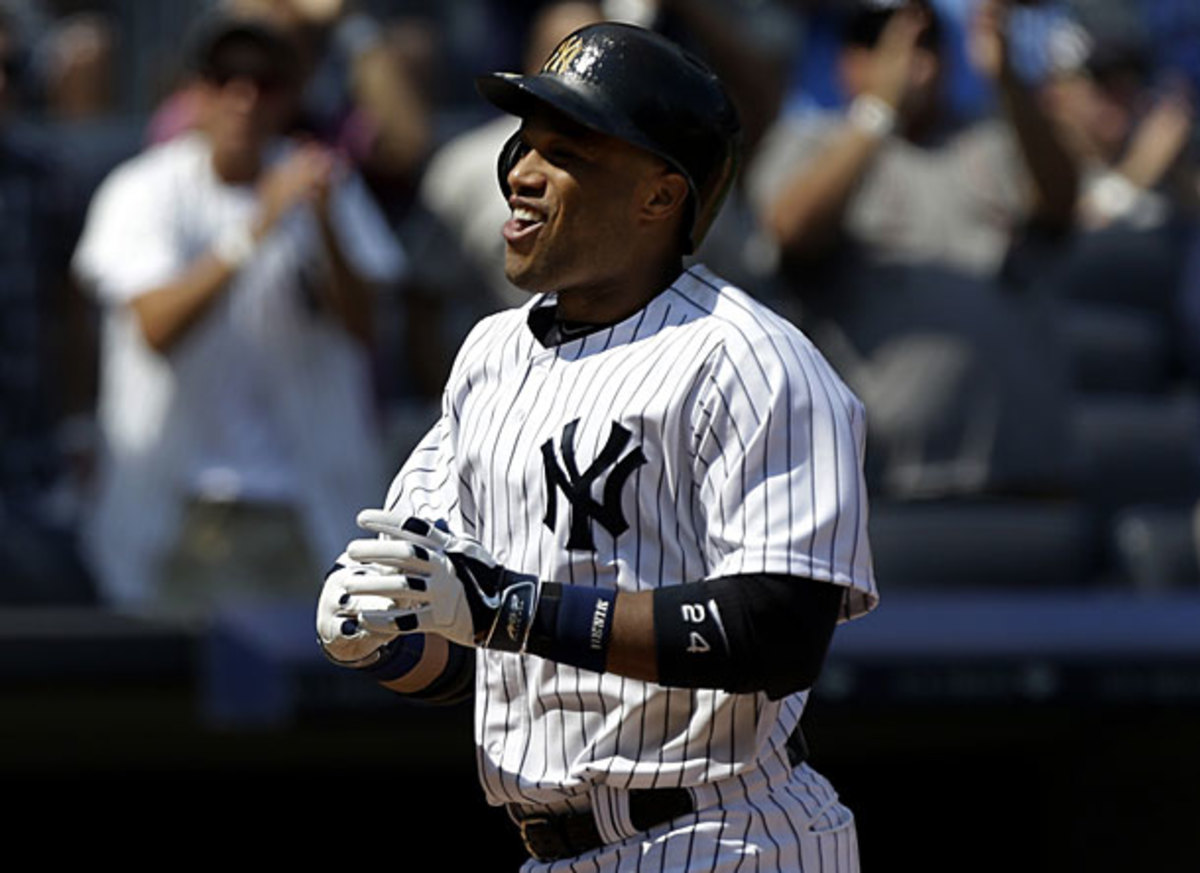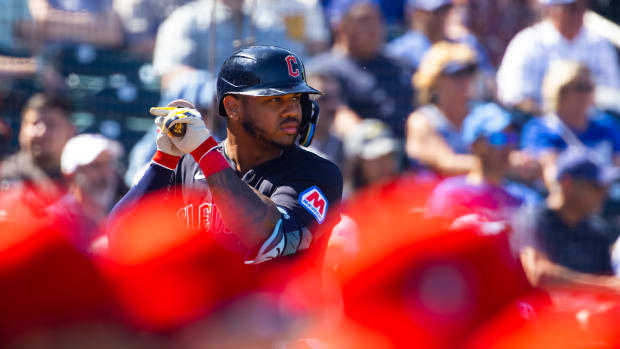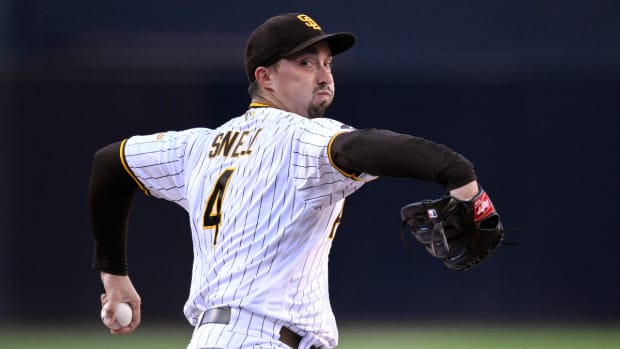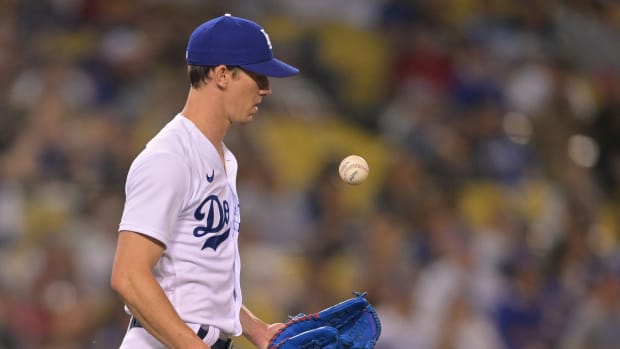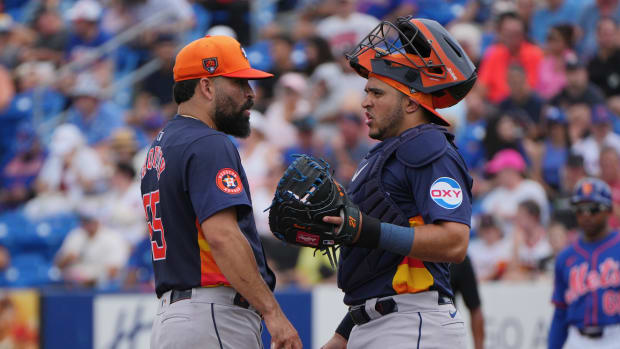Wait 'Til Next Year: New York Yankees
Robinson Cano could be in his final days as a Yankee. (Seth Wenig/AP)
While so much of our day-to-day attention in this space is devoted to the teams still battling for playoff spots, we feel as though it’s only fitting to acknowledge the teams that have been mathematically eliminated from contention, giving them a brief sendoff that should suffice until Hot Stove season. Thus, the Wait ‘Til Next Year series.
Current Record: 82-76 (.519, tied for third in AL East)
Mathematically Eliminated: Sept. 25
What went right in 2013:
Robinson Cano has had yet another MVP-quality season and started all but one of the Yankees' first 158 games. Hiroki Kuroda similarly replicated his excellent 2012 season, asserting his place as the team's best starting pitcher. Mariano Rivera returned from a year lost to a torn anterior cruciate ligament for a healthy final season characterized by his typical dominance and class. Ivan Nova returned from an early-season arm injury to go 7-4 with a 2.71 ERA and his first two career shutouts. Alfonso Soriano proved to be a brilliant mid-season acquisition, hitting .256/.319/.531 with 17 home runs and 50 RBIs in his first 55 games since returning to New York after a nine-year absence. David Robertson had another excellent season as Rivera's primary set-up man.
What went wrong in 2013:
The Yankees' 2013 season started to go bad in the 12th inning of Game 1 of last year's AL Championship Series against the Tigers. That's when Derek Jeter broke his left ankle, an injury that would reverberate throughout this entire season. Very little went right for New York after that. Russell Martin signed with the Pirates on Nov. 30. Three days later, the team announced that Alex Rodriguez needed hip surgery. Curtis Granderson had his wrist broken by a pitch in his very first at-bat in spring training. Six days after that, Mark Teixeira tore a tendon sheath in his right wrist.
Perhaps most remarkably, Jeter, Granderson and Teixeira would all suffer recurrences of their injuries -- not aggravations, recurrences. Jeter's ankle broke again, Teixeira's tendon sheath tore again and Granderson, in just his eighth game of the season, had his hand broken by another pitch. As a result, Teixeira would play just 15 games all year and Jeter, who suffered quadriceps and calf strains after the second break in his ankle healed and was ultimately shut down in early September due to pain in that twice-broken ankle, played in just 17.
[si_video id="video_91165204-28CD-3FD6-C8FD-5BDE43D2643A" height="470]
The Yankees intended starting infield of Teixeira, Cano, Jeter and Rodriguez did not start a single game together all season, nor did the version of the infield featuring Kevin Youkilis at third base, as a herniated disc ended his season in mid-June. Add in the time missed by Jeter's backups, Eduardo Nuñez and Jayson Nix, and the Yankees accumulated a staggering 649 games missed due to injury at first base, shortstop and third base alone, which, due to overlapping DL stays at the latter two positions, works out to more than 216 games missed per position.
That doesn't count the 98 games missed by Granderson, the 60 games missed by designated hitter Travis Hafner, the loss of leadoff hitter and centerfielder Brett Gardner for the crucial final 15 games of the season, or the broken hand and elbow and subsequent Biogenesis suspension that combined to keep catcher Francisco Cervelli out of action starting on April 26.
My Strike Zone batterymate Jay Jaffe calculated on Monday that the impact of the injuries to Teixeira, Jeter, Rodriguez, Youkilis, Granderson and Hafner alone cost the Yankees roughly 14 wins. Further, the team's decision not to replace Martin left them with a replacement-level catching squad (which would have been true even if Cervelli stayed healthy, despite his hot start), costing them 4.3 wins per Martin's bWAR with Pittsburgh this season. That's not to say that the Yankees would have been a 100-win team had they re-signed Martin and everyone stayed healthy -- WAR is a blunt instrument that doesn't translate directly into a team's won-loss record -- but it gives an indication of how badly things went wrong for New York in 2013. Oh, and that's without mentioning the performances of those players' replacements (though Jaffe factored them into his calculations) or of the pitching staff.
JAFFE: Calculating the impact of injuries on the Yankees' season
In Martin's absence, Yankees catchers have hit .213/.291/.298 this season, compared to a league average at the position of .245/.310/.388. New York's decision not to re-sign Nick Swisher was more defensible, but without him, the injuries to Granderson, Hafner and Gardner made regulars out of 39-year-old Ichiro Suzuki (.262/.298/.344 in 547 plate appearances) and desperation addition Vernon Wells (.237/.286/.355 in 451 PA). The latter was acquired on March 26, the same day the Yankees signed Lyle Overbay, who was released by the Red Sox at the end of spring training and wound up being the Yankees' primary first baseman, hitting .241/.296/.396 in 480 plate appearances. Suzuki, Wells and Overbay turned in those performances primarily in the outfield corners and first base, positions where the average major leaguer hit .263/.330/.427 this year.
As for the pitchers, CC Sabathia suffered through his worst major league season, posting a 4.78 ERA, dropping his ERA+ below average for the first time (to 85 against a league average of 100). Phil Hughes was worse. The team's former top prospect went 4-14 with a 5.19 ERA (78 ERA+), lost his rotation job at the start of September, then was reinstated as a tandem starter with David Huff replacing him no later than the fourth inning in each of his last three starts. Replacement starter David Phelps looked like a nice addition to the rotation during Nova's absence early in the year, but a forearm strain shelved him for most of July and August. Meanwhile, Joba Chamberlain, another former top prospect heading to free agency this fall, missed a month with an abdominal strain early in the year then proceeded to have his worst major league season, walking 5.4 men per nine innings and posting an 82 ERA+ as a middle reliever.
Of course, there was also the ongoing fiasco of Alex Rodriguez's involvement with Biogenesis, including his suspension, appeal and grievance against the team. That, remarkably, didn't actually affect the Yankees' performance in 2013, but it was certainly something that went wrong in just about every other way imaginable.
Overall outlook:
It's impossible to deny that the Yankees had a tremendously unlucky season, but as Branch Rickey liked to say, "Luck is the residue of design." In the case of the 2013 Yankees, injury and poor performance were in part the residue of age (Jeter was 39, Rodriguez 37, Hafner 36, Youkilis 34, Teixeira 33, Sabathia a 13-year veteran at 32).
The team's inability to get younger or to replace its missing and broken parts with ones less likely to break and more likely to produce was in part the residue of a series of massive contracts (primarily: Rodriguez: $275 million/10 years; Teixeira: $180M/eight; Sabathia $122/five). That prompted principal owner Hal Steinbrenner, who is more bottom-line oriented than his late father, to task general manager Brian Cashman with bringing the team below the luxury tax threshold for 2014, thus resetting the team's tax rate from 50 percent to 17.5 percent for 2015. It is also the result of a shift in the way the other 29 teams treat free agency, increasingly and overwhelmingly signing their best young players to extensions well shy of their hitting the open market in order to secure their best seasons, thus draining the free agent market -- a major source of talent for the Yankees over the last dozen years -- of talented players in their prime.
The Yankees, meanwhile, have long had a policy of not extending players already under contract. As a result, the best player on the free agent market this offseason will be Cano. There are two possible outcomes for the Yankees here: They can lose their best player to free agency, or they can sign Cano, who turns 31 in October, to exactly the sort of contract that contributed to their current predicament. Indeed, CBS Sports' Jon Heyman reported on Thursday that Cano is seeking a 10-year deal worth $300 million, and the Dodgers exist as a legitimate landing place for Cano to force the Yankees to take such demands seriously. If Cano's price gets that high (in terms of both money and years), New York should let him walk, but he would leave a husk of a team behind. Mariano Rivera and Andy Pettitte are retiring, Rodriguez will possibly be suspended, Granderson is also a free agent, and Jeter, who will likely pick up his player option, is hardly a guarantee to be of any use as a 40-year-old shortstop and designated hitter.
CORCORAN: How the Yankees might try to fill Andy Pettitte’s spot in their rotation






























